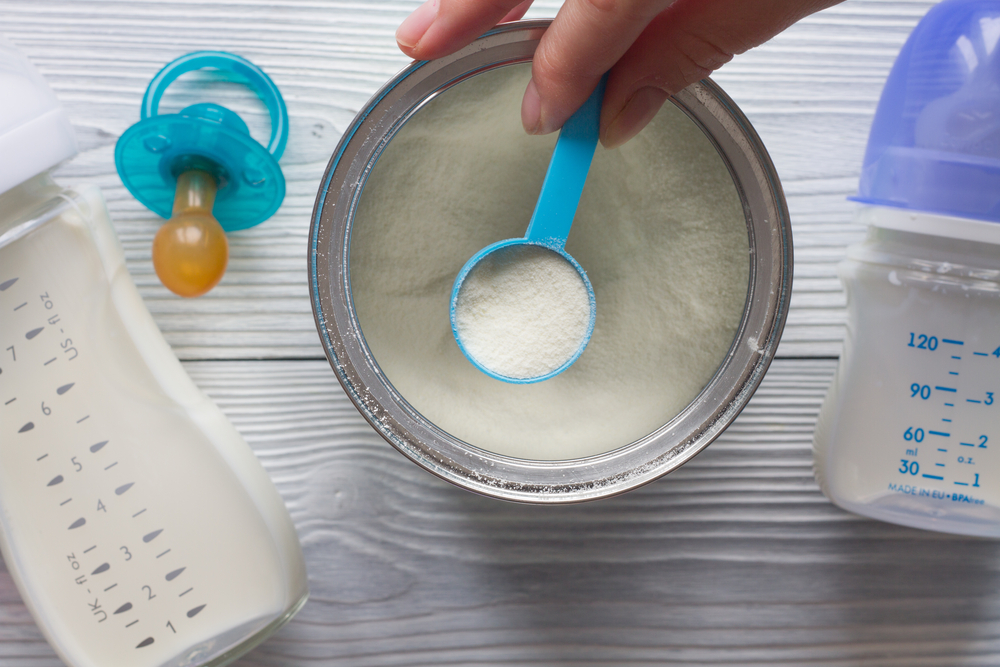TYPES
Formulas fortified with iron are best for babies since it is one of the key nutrients needed for them to grow healthy and strong. The following are some of the most common types of breastmilk substitutes:
- Cow’s milk-based– This is based on cow’s milk, which accounts for about 80% of all purchases. While cow’s milk is used in these formulations, it has been drastically altered to make it healthy for babies. Heating and other techniques are used to make the protein more digestible.
- Soy-based formula-It differs from milk-based formulas because it contains protein and sugar (either sucrose or glucose) from the soya beans. It is sometimes prescribed for babies who can’t digest lactose, which is the primary sugar in cow’s milk formula.
- Protein hydrolysate or hypoallergenic– It is a formula that can be beneficial for infants who have dairy allergies. It consists of proteins that have been hydrolyzed or broken down extensively into tiny sizes.
- Lactose-free– It is a formula utilized for galactosemia and for infants who can’t absorb lactose. Note, however, that a child with gastrointestinal problems, such as diarrhea, may not need to drink a lactose-free formula. Also, there are formulas suited for babies with medical conditions.
Furthermore, before changing your baby’s formula, it is best to consult your pediatrician first. This is to ensure that your baby stays healthy and strong.
What Infant Formulas Are Available?
Most formulas can be purchased in the following forms:
- Concentrated liquid formulas and powdered formulas- These must be mixed with water, and it costs less.
- Ready-to-use formulas– You don’t have to add water with this. It is convenient but may cost more.
Additionally, special formulas are available and suitable for babies and premature infants who have certain health problems. Also, make sure to clean your hands before preparing formulas and cautiously follow any instructions.


